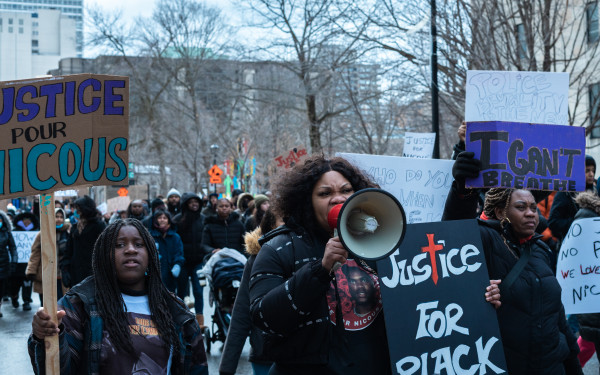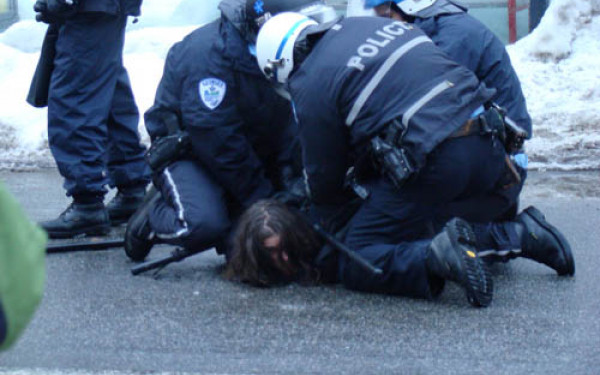Editorial
No one watching
The Montreal Police Force has twice made the headlines this week; by finally admitting to assigning traffic-ticket quotas, and by scheduling the long-awaited inquiry of Mohamed Anas Bennis’ death.
Claiming to be entering a “new era of transparency” since new chief Marc Parent took charge, police made public what was already a widely held suspicion in the city—and managed to quietly turn it into positive press, which was repeated in The Gazette’s editorial on Saturday. Traffic officers are required to give out a certain number of tickets, varying from 16 to 18 per work shift – a move that has more than doubled traffic violation revenues since the re-establishing of the traffic squad four years ago.
The population is obviously angry, but the city administration insists that money is not the driving force behind the policy. Not even police officers support the quotas. The police brotherhood says issuing tickets takes time from other, more important work, such as patrolling.
But without necessarily judging the merits of ticket quotas, if the SPVM has legitimate reasons to believe that the quotas help diminish traffic deaths, then why deny their existence? Sure, Parent has opened up in comparison to previous top cops of the SPVM, but how about some transparency on what was a high priority on his agenda as of his nomination, racial profiling?
Despite Parent’s promise of transparency and a “new day” by addressing the problem, the SPVM seem to have failed to apply their brand new philosophy to the second issue brought to light in the past few days: in December 2005, an officer shot and killed a 25-year-old man who was walking home from prayer at a mosque in the Montreal neighbourhood of Notre-Dame-de-Grâce, and subsequently declared to have done so in self-defence. Only now, over five years later, will the inquiry begin.
Investigations were initially conducted by Quebec City’s police because of its supposed neutrality and distance and from the case. Still, to call in the police, even if from another city or province, to examine the alleged crimes of fellow police and expect an unbiased investigation is either extremely naïve or shows no desire for the investigation to actually move forward.
If the SPVM learned anything from the murder of Fredy Villanueva, it’s the importance of preserving transparency by implementing an independent committee to investigate this type of incident. To follow Toronto’s example for once, maybe members of the community and specialists would be a great addition, if not an imperative one, to squads inquiring cases in which police integrity is questioned. Wrongful deaths at the hands of police officers is not an insular issue to be dealt with exclusively by the police – it is an issue that affects the entire community, and the community should have a hand in investigating these cases lest the general public lose confidence in the police entirely.
Both in Villanueva’s and the Bennis’ case, what is frightening is that there is no one overlooking police’s actions except for police themselves. If Parent wants to build a solid image of transparency, which he seems to making an effort towards, then maybe he should address the fact that there is no one watching our watchmen.
—Julia Jones,
Online Editor
This article originally appeared in Volume 31, Issue 20, published January 25, 2011.



_(1)_600_375_s_c1.png)

